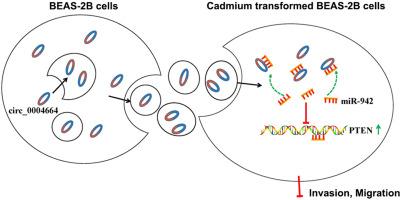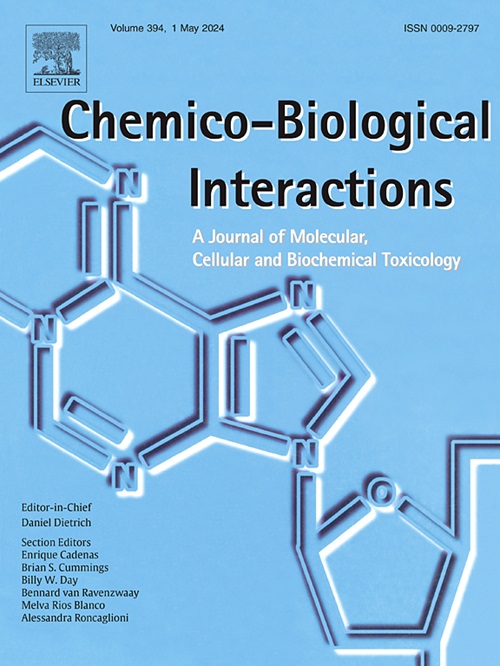Exosome-transmitted circ_0004664 suppresses the migration and invasion of cadmium-transformed human bronchial epithelial cells by regulating PTEN expression via miR-942-5p
Abstract
Exosomes play a crucial role in regulating extracellular communication between normal and cancer cells within the tumor microenvironment, thereby affecting tumor progression through their cargo molecules. However, the specific impact of exosomal circular RNAs (circRNAs) on the development of cadmium-induced carcinogenesis remains unclear. To address this, we investigated whether exosomes derived from normal human bronchial epithelial BEAS-2B (N–B2B) cells could transmit circRNA to cadmium-transformed BEAS-2B (Cd–B2B) cells and the potential effects on Cd–B2B cells. Our findings demonstrated a significant downregulation of circ_0004664 in Cd–B2B cells compared to N–B2B cells (P < 0.01). Overexpression of circ_0004664 in Cd–B2B cells led to a significant inhibition of cell migration and invasion (P < 0.01 or P < 0.05). Furthermore, N–B2B cells could transfer circ_0004664 into recipient Cd–B2B cells via exosomes, subsequently inhibiting cell migration and invasion (P < 0.05 or P < 0.01). Mechanistic investigations revealed that exosomal circ_0004664 functioned as a competitive endogenous RNA for miR-942-5p, resulting in an upregulation of PTEN (P < 0.05). Our study highlights the involvement of exosomal circ_0004664 in cell-cell communication during cadmium carcinogenesis, providing a novel insight into the role of exosomal circRNA in this process.


 求助内容:
求助内容: 应助结果提醒方式:
应助结果提醒方式:


